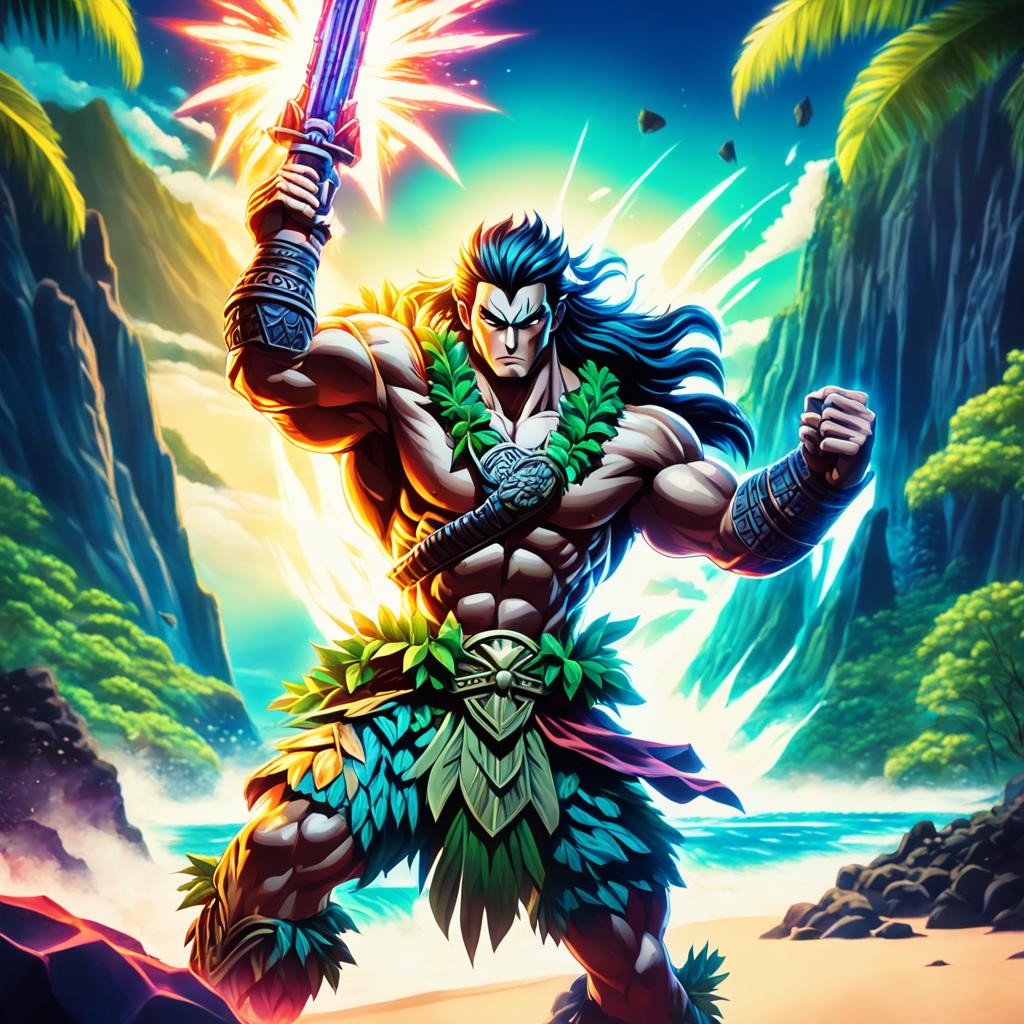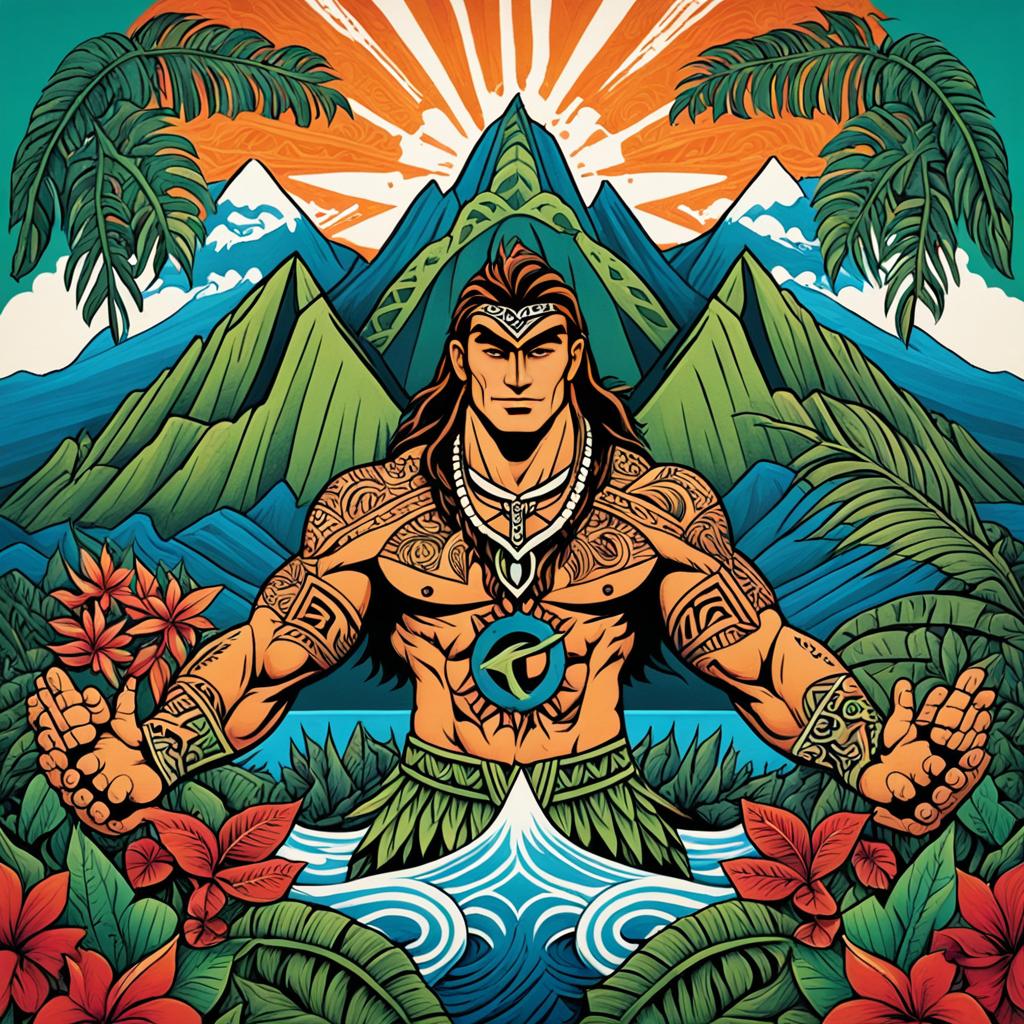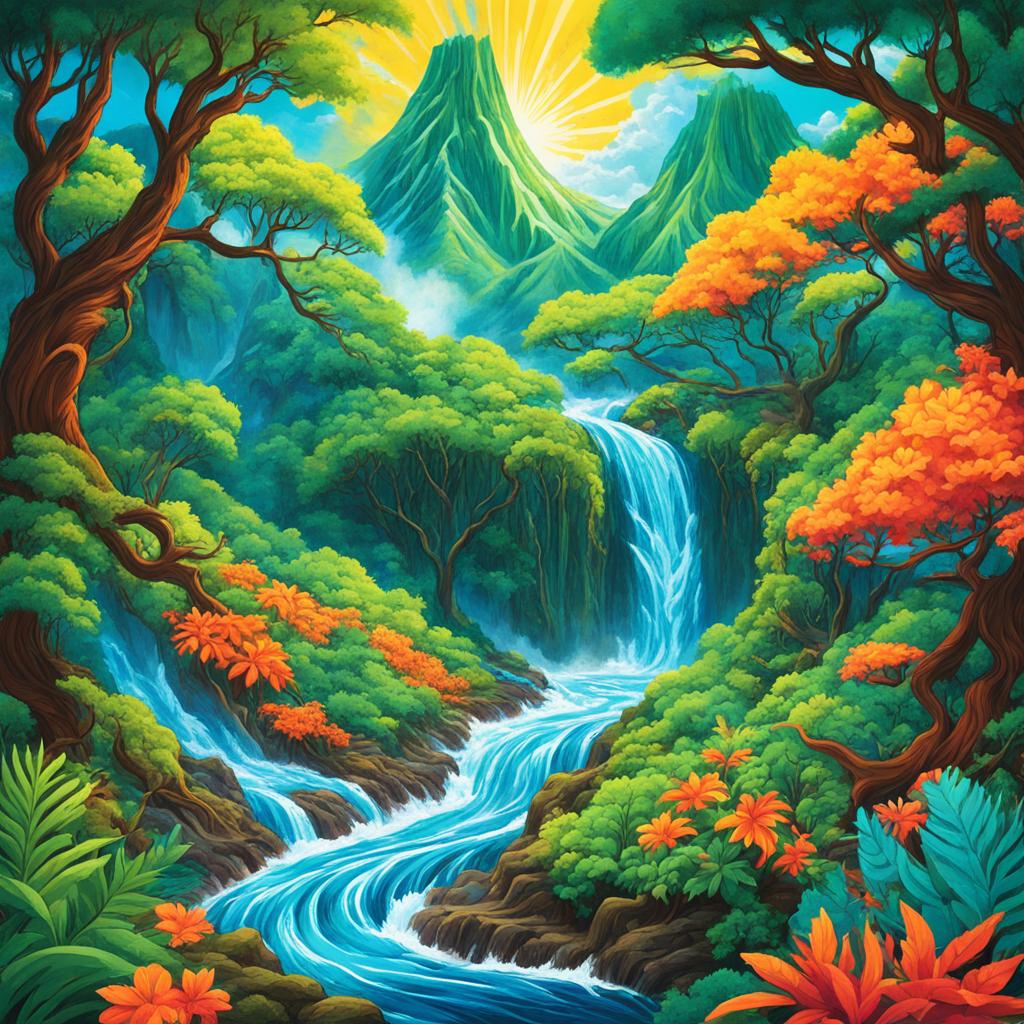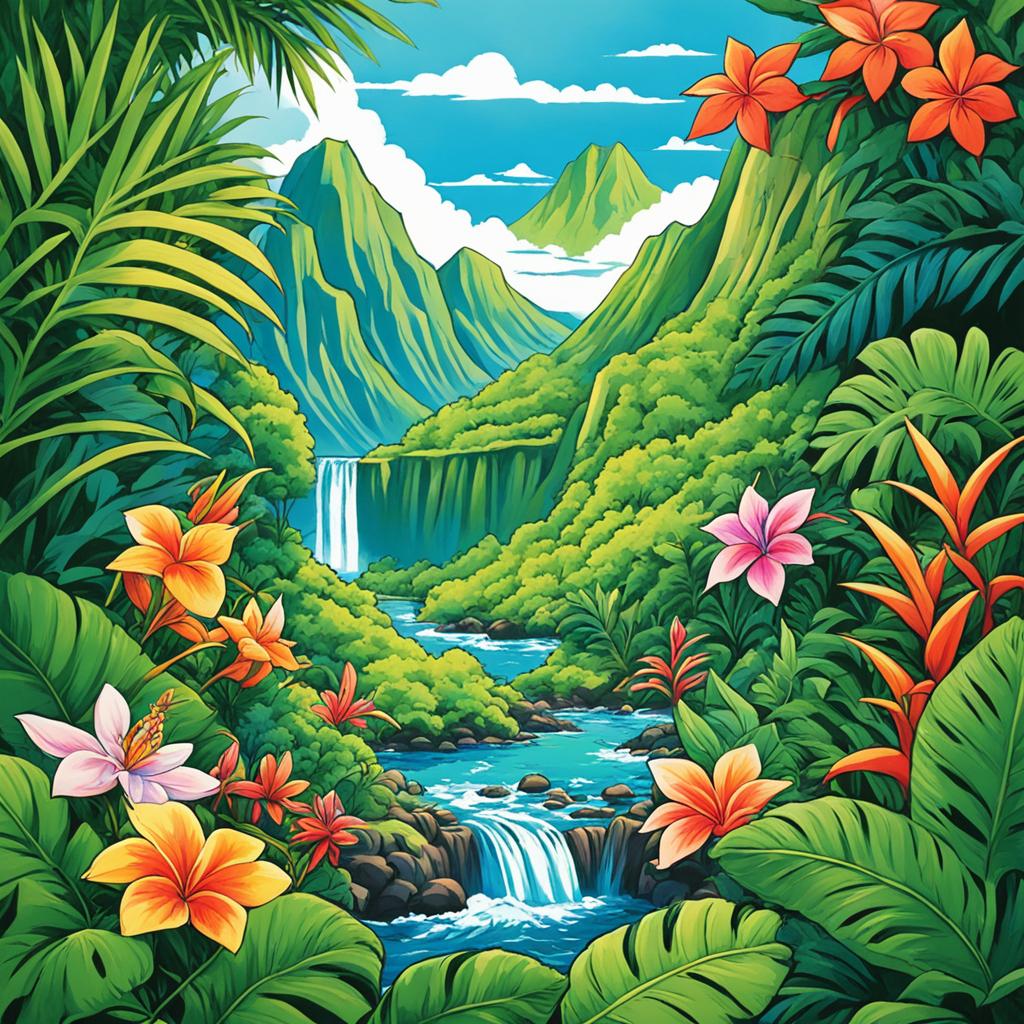Have you ever wondered about the deep spiritual concepts that shape different cultures? One such concept is mana, a vital element of Hawaiian spirituality and cultural belief system. But what does mana truly mean in the context of Hawaiian culture? And how does it influence the structure of Hawaiian society?
In this article, we will delve into the rich world of Hawaiian spirituality and the significance of mana. We will explore the cultural concept of mana, its association with kapu (sacredness), and its connection to heiau (sacred sites). You will discover how mana shapes Hawaiian society and its role in determining authority, respect, and supernatural power.
The Significance of Mana in Hawaiian Society

Mana holds immense significance in Hawaiian society, deeply influencing their cultural beliefs and practices. It is intrinsically tied to concepts of respect, authority, and supernatural power, permeating every aspect of Hawaiian life. Individuals who possess a considerable amount of mana are revered and regarded as special within the community.
Chiefs, in particular, are believed to possess the highest level of mana due to their ancestral lineage tracing back to the gods. They are treated with utmost reverence and strict protocols, reflecting the profound respect accorded to their exceptional mana. The mana of chiefs is not only a personal attribute but also extends to their role as the political and spiritual leaders of their people.
This understanding of mana extends beyond individuals and also encompasses objects and places that are believed to possess sacred and divine power. In Hawaiian culture, heiau, or sacred sites, hold great mana and are considered holy. These sites were dedicated to specific gods and were used for religious ceremonies, rituals, and offerings, further emphasizing the religious significance attached to mana.
The significance of mana in Hawaiian society cannot be overstated. It serves as a guiding force in shaping societal norms, morality, and the overall balance of power. Understanding and respecting mana is integral to the cultural fabric of Hawaii and plays a vital role in maintaining harmony and spiritual connection with the divine.
Mana in Polynesian and Melanesian Cultures

Mana, the supernatural power, is not limited to Hawaiian culture alone. It holds significant importance in various other Polynesian and Melanesian cultures as well. Mana is seen as a force that transcends the boundaries of the physical world, permeating the universe and flowing through both living beings and inanimate objects. It is believed to be a cultivation or possession of energy and power that blesses and influences the world around it.
In Polynesian cultures, mana is often expressed through speech, movement, and traditional rituals performed by prophets, priests, or kings. It is regarded as a transcendent power that holds great authority and influence. In Melanesian cultures, mana is closely associated with powerful natural forces like thunder and storm winds, embodying the awe-inspiring and untamed aspects of the natural world.
Just as in Hawaiian culture, mana plays a central role in shaping the belief systems, social structures, and practices of Polynesian and Melanesian societies. It represents a connection to the divine and the supernatural, underscoring the inherent spiritual nature and interconnectedness of these cultures.
Through the concept of mana, individuals in Polynesian and Melanesian cultures can tap into the supernatural power that is believed to flow through everything in the universe. It is a reminder of the profound spirituality and reverence these cultures hold for the natural world and its unseen forces.
The Origin and Etymology of Mana

The term mana finds its origins in the Proto-Oceanic word *mana, which initially referred to powerful forces of nature. Over time, its meaning evolved to signify unseen supernatural powers, becoming an integral concept in Polynesian theology. In Polynesian culture, mana is regarded as a sacred and impersonal force that can exist in individuals, places, and objects.
Mana is often associated with authority, influence, and efficacy. It embodies a spiritual power and ownership derived from the atua (gods), reflecting the influence of divine forces in everyday life. However, mana is a non-Western concept, making it challenging to translate into a single English definition.
In Polynesian theology, mana holds great significance and forms the foundation of the spiritual realm. It is believed that individuals can possess varying degrees of mana, which can be cultivated and inherited through lineage or bestowed by the gods.
Despite its intangible nature, mana permeates Polynesian culture, shaping beliefs, practices, and societal structures. It influences the social hierarchy, as individuals with greater mana are bestowed with respect and reverence.
In summary, the origin and etymology of mana traces back to the Proto-Oceanic word *mana, reflecting the early recognition of powerful forces in nature. In Polynesian theology, mana represents a sacred and impersonal force associated with authority and efficacy, derived from the atua (gods). Its significance in Polynesian culture cannot be understated, as it shapes beliefs and influences the sociocultural fabric of the Pacific islands.
Mana in Māori Culture
In Māori culture, mana holds great significance and is deeply embedded within their societal structure. It encompasses two essential aspects: mana tangata and mana huaanga. Mana tangata is derived from genealogy and whakapapa, representing the ancestral connections and lineage of an individual. It is a form of authority that comes from one’s heritage and is respected and acknowledged within the community.
Mana huaanga, on the other hand, is derived from having the resources and abilities to provide for others and create reciprocal obligations. It is associated with the ability to give and support the community, infusing one’s actions with a sense of responsibility and accountability.
Overall, mana plays a crucial role in Māori leadership and governance. It influences the way leaders are chosen and the expectations placed upon them. Leaders with strong mana are esteemed and entrusted with decision-making powers, as their authority is seen as grounded in their connections to the ancestors and their ability to provide for their people.
The concept of mana is deeply rooted in Māori constitutional traditions and is incorporated into various aspects of daily life. It shapes the relationships between individuals, communities, and the land. Mana is not easily translated into English, as it encompasses a complex array of meanings, values, and beliefs.
To illustrate the importance of mana in Māori culture, here is a table showcasing the key elements:
| Aspect | Definition |
|---|---|
| Mana Tangata | Derived from genealogy and whakapapa, representing ancestral connections and authority. |
| Mana Huaanga | Derived from having resources to gift to others and create reciprocal obligations. |
Modern Usage and Meaning of Mana
In contemporary New Zealand English, the word “mana” has taken on a new significance, encompassing the idea of personal prestige and character. It is used to describe individuals or organizations that possess a sense of authority, respect, and influence within their respective fields. The increased usage of the term can be attributed to the country’s growing awareness of Māori culture, the politicization of Māori issues, and the Māori Renaissance.
Mana has become a prominent concept in New Zealand society, reflecting the recognition of the importance of Māori culture and the value placed on indigenous perspectives. It holds cultural significance and is considered a foundational aspect of Māori identity and leadership. The word “mana” denotes not only personal prestige but also embodies the spirit and essence of Māori tradition.
As New Zealand continues to embrace its diverse cultural heritage, the concept of mana serves as a reminder of the respect and reverence that should be accorded to individuals, organizations, and communities that embody the principles of mana. It is a symbol of the strength, influence, and integrity that emanates from those who carry themselves with grace and uphold the values of Māori traditions. The modern usage of mana reflects the ongoing commitment to recognizing and celebrating the cultural diversity and heritage of New Zealand society.
FAQ
Q: What is the meaning of mana in Hawaiian?
A: Mana is a vital concept in Hawaiian religious beliefs and the structure of Hawaiian society. It is often referred to as supernatural power, divine power, or spiritual energy.
Q: What is the significance of mana in Hawaiian society?
A: Mana plays a significant role in Hawaiian society, shaping their cultural beliefs and practices. It is associated with respect, authority, and supernatural power.
Q: How does mana relate to kapu?
A: Mana is associated with the concept of kapu, which is both sacred and a form of law. Heiau, or sacred sites, are believed to possess great mana and are highly respected in Native Hawaiian culture.
Q: Is mana limited to Hawaiian culture?
A: Mana is not limited to Hawaiian culture but is also a significant concept in other Polynesian and Melanesian cultures. It is seen as a supernatural force that permeates the universe.
Q: What is the origin and etymology of mana?
A: The term mana is believed to have originated from the Proto-Oceanic word *mana, which initially referred to powerful forces of nature but later evolved to signify unseen supernatural powers.
Q: How is mana understood in Māori culture?
A: In Māori culture, mana has two essential aspects: mana tangata, which is derived from genealogy and whakapapa, and mana huaanga, which is derived from having resources to gift to others and create reciprocal obligations.
Q: How is mana used in contemporary New Zealand society?
A: In contemporary New Zealand English, the word “mana” is often used to describe a person or organization of great personal prestige and character. It reflects the importance of Māori culture and indigenous perspectives.
